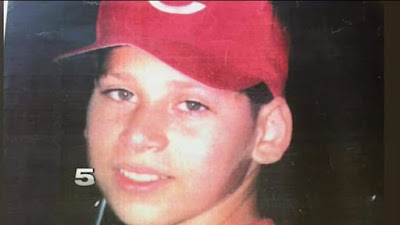 |
| Pablo Lucio Vasquez |
Pablo Vasquez, 38, was put to death by lethal injection in Huntsville, Texas, Wednesday night, for the 1998 murder of 12-year-old David Cardenas.
According to reporters who witnessed the execution in Texas, Vasquez looked at four of his victim’s relatives and told them in his final statement, “this is the only way that I can be forgiven. You got your justice right here.”
After the deadly pentobarbital began entering his body, Vasquez said he was feeling dizzy and “see you on the other side.”
He was pronounced dead at 7:35 p.m. EDT.
Vasquez’s lawyer appealed to the U.S. Supreme Court this past week, asking the court to take his case and stay his execution on the grounds that the trial court repeatedly excused several prospective jurors who were morally or religiously opposed to the death penalty.
On Wednesday afternoon, the Supreme Court denied the request. There were no noted dissents from the court’s decision.
The petition stated that during jury selection for Vasquez’s capital murder trial in 1998-99, the trial court repeatedly excused prospective jurors “with sympathies against the death penalty, or with sympathies against judging others, who were nevertheless qualified to serve as jurors,” which his lawyer argued violated Vasquez’s constitutional rights to a fair and impartial jury.
The 26 excluded jurors referenced in the petition as forming the basis of his claim include Jehovah’s Witnesses who said they were against “judging others,” as well as some who held religious or personal beliefs against the death penalty, the petition states.
His lawyer argued that, while these potential jurors gave those initial comments, the trial court did not “remotely establish” that any of the excused jurors were not qualified to serve as jury members at the trial.
The state countered that Vasquez’s petition must be rejected because it is barred by an independent state procedural ground. Additionally, the state counters that the potential jurors were properly excluded from the jury.
Vasquez’s previous appeals to courts to stop his execution on the grounds that he was mentally ill were unsuccessful.
The victim, David Cardenas, was found under metal sheets in the Texas border town of Donna in 1998. The arms were missing from the corpse, which had no skin on the back and a hole in the back of the head, court papers filed by Texas said.
The incident raised worries at the time about occult rituals, which were stoked when prosecutors produced a taped confession in which Vasquez, then 21, admitted to the killing and said he drank his victim's blood after saying voices from the devil told him to do so.
Cardenas, trying to fit in with a group of teenagers and Vasquez, was hanging out with the group near a mobile home, when he was attacked.
Police later received tips of a murder and found the decaying and mutilated body of the 12-year-old, the court papers showed.
 |
| 12-year-old David Cardenas |
Prosecutors said Vasquez hit the victim in the head with a pipe and cut his throat.
They also said he stole some jewelry from the victim.
"The body was also mutilated after death by some means that caused bones to shatter," the court papers said.
It took the jury about an hour to find Vasquez guilty.
A co-defendant, then 15, was sentenced to 35 years in prison on a murder conviction.
Three other relatives of both convicts were sentenced to probation and fines after pleading guilty to hiding evidence.
Vasquez told police that he “blacked out” and heard voices in his head telling him to kill Cardenas. When asked why he wanted to cut Cardenas’s head off, Vasquez said, “The devil was telling me to take it away from to keep it, keep it, couldn’t come off. I was just freaking out ‘cause I was hearing that.”
He also stole a gold ring and chain from Cardenas’s body. Vasquez’s cousin testified that he told her he killed the boy because Cardenas did not “give him what he wanted.”
Vasquez becomes the 1,433rd inmate executed since the reinstatement of capital punishment in the United States, the 537th in Texas, the 11th in 2016, the 6th in Texas in 2016, and the 19th under the watch of Governor Abbott.
Sources: Buzzfeed, Reuters, AP, Rick Halperin, Twitter feed, April 6, 2016











